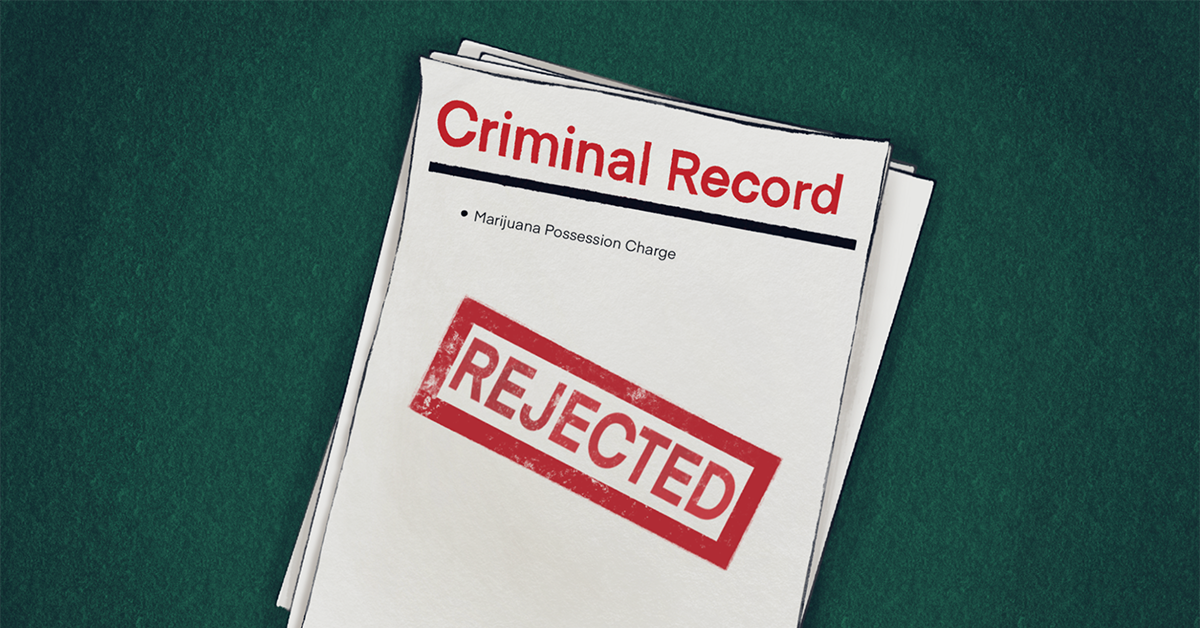Stepping Back from MIMJNews - A Personal Farewell

If you don't already know me, my name is Ryan, and I've been the sole owner, operator, and writer for Michigan Marijuana News (MIMJNews.com). Today, I'm writing with a heavy heart to announce that I'll be stepping back from this project.
This decision wasn't an easy one, but it's been weighing on me for a few weeks now. If you've been subscribed to the weekly newsletter, you might remember that I welcomed my fourth son into the world just a couple of months ago. Becoming a father again has been a joy beyond words, but it's also made me realize that my free time has become a rare commodity. Between family life and my responsibilities as a self-employed, stay-at-home parent, I simply don't have the bandwidth I once did to dedicate to this site.
Another factor in this decision is that the site hasn't gained the traction I'd hoped for. When I started MIMJNews, it wasn't about making money. I never expected this to be a big revenue stream, and honestly, I was okay with that. But I did hope for some engagement-whether that came in the form of sponsored article opportunities, collaboration inquiries, or even just a bit of recognition from the industry. For the most part, that hasn't materialized. While I poured a lot of passion and effort into this project, it's hard not to feel a bit disheartened when that work doesn't seem to resonate on a larger scale.
The final, and perhaps most significant, reason is the uphill battle I've faced with search visibility. For reasons I still can't quite pin down, Google doesn't seem to like MIMJNews. Despite all my efforts-drawing on over 25 years of experience with websites-I couldn't really get the site to appear in search results. It feels like the site is blacklisted in some way, which severely limits its potential audience. That compounds the challenges I mentioned earlier, making it clear that the time and energy I've invested here may not yield the results I hoped for.
That said, I want to express my heartfelt gratitude to everyone who supported this site. Whether you stumbled across it through Reddit, Discord, or social media, your engagement meant the world to me. To those of you who subscribed to the newsletter, thank you for giving me a small but tangible sign of growth amid these challenges.
I can't say for certain that this is goodbye forever. Maybe in a year or two, when life feels a little less hectic, I'll have the chance to revisit this project. For now, though, I need to focus on my family and other endeavors that better align with my current situation.
Thank you all for your support, no matter how small it may have seemed. Best of luck to each of you in your own journeys. Stay safe, and stay high.
Warm regards,
Ryan
Michigan Police Struggle with Post-Legalization Search Tactics

Police have long utilized the scent of cannabis as a pretext for searching vehicles during traffic stops in areas where cannabis remains illegal. This practice enables them to confiscate cash and even the vehicles themselves. Once in possession of these assets, law enforcement agencies can employ civil forfeiture, a legal process allowing them to permanently keep the seized property. This practice, akin to legalized highway robbery, operates with court approval.
No arrest or conviction is necessary for civil forfeiture. Once the procedure concludes, participating agencies can divide the proceeds. From 2000 to 2019, state and federal forfeiture revenue in Michigan exceeded $439 million.
Civil forfeiture has become a lucrative enterprise, often initiated by the mere whiff of cannabis. However, Michigan's legalization of recreational cannabis in 2018 has complicated matters for the police. While consuming cannabis in a vehicle remains illegal, possessing it does not, thus eliminating the officers' primary justification for conducting warrantless searches.
The Detroit Police Department struggles to adapt to this new reality. On October 8th, 2020, five Detroit officers on their way to a compliance check stopped when one corporal claimed to smell cannabis emanating from a parked Jeep Cherokee. She then conducted a roadside interrogation of the driver and her passenger, Jeffery Scott Armstrong.
"How long you been smoking weed in the car?" the corporal demanded, according to a transcription of bodycam footage. "I can smell it from outside. Don't act shocked. I can smell it."
Prior to 2018, such an encounter would have been standard procedure. However, the mere smell of cannabis no longer constitutes a crime. The corporal should have continued on her way, but she opted to stop and search the vehicle, infringing on the occupants' Fourth Amendment rights against unreasonable search and seizure.
The officers discovered a firearm under Armstrong's seat and arrested him for being a felon in possession of a firearm, although no cannabis was found. This outcome is unsurprising, as cannabis odor can linger long after its legal use or exposure to others smoking it. Moreover, officers can be mistaken or dishonest. A study in Philadelphia revealed that contraband was found in fewer than 10% of the 3,300 cannabis odor-based vehicle searches conducted by police.
Despite their poor success rate, police remain confident in their olfactory abilities. In 2019, three Indiana officers even testified that they detected less than one gram of unlit cannabis in a closed container from a moving car over 100 yards away, despite a breeze cutting across traffic.
Drug-sniffing dogs also have a high error rate, often failing to differentiate between legal hemp and cannabis. These canines cannot specify whether they detect cannabis or other narcotics like cocaine, rendering them ineffective in states like Michigan where cannabis is legal.
Both human and canine cannabis sniffers need to adapt to the changing legal landscape. Armstrong's case provided Michigan courts with an opportunity to offer clarity when he filed a motion to suppress evidence from the 2020 search. A trial court granted his motion, and the Michigan Court of Appeals upheld the decision in 2022. Dissatisfied, the state petitioned the Michigan Supreme Court, which agreed to hear the case.
Our public interest law firm, the Institute for Justice, alongside the Cato Institute, submitted a friend-of-the-court brief supporting Armstrong. Our argument is straightforward: If a substance is legal, its odor should not constitute probable cause for a search.
Armstrong's case highlights the need for thorough judicial review of probable cause determinations made by officers in the field. Civil forfeiture can bias these decisions, fostering aggressive policing due to financial incentives.
Although Armstrong did not lose cash or his vehicle, many others are not as fortunate. Innocent property owners often suffer when officers exploit the scent of cannabis as a pretext for warrantless searches.
From Taboo to Mainstream: One Resident's Experience with Legal Cannabis in Michigan

Welcome to our guest post section, where we invite members of our community to share their personal stories and perspectives on various topics. Today, we feature a piece from a local resident who explores their firsthand experiences with Michigan's legal cannabis landscape. This narrative not only recounts personal experiences and shifts in perception but also delves into the broader implications of cannabis legalization in our community, particularly focusing on the recent debates in Bad Axe. We hope this piece offers valuable insights and fosters understanding of the ongoing discussions surrounding cannabis in Michigan.
In early 2020, Michigan embarked on a new chapter as recreational cannabis sales became legal, marking a significant shift in the state's approach to cannabis. My own journey into this new legal landscape began somewhat unexpectedly, accompanying a friend to a dispensary in Bay City. This excursion was driven primarily by curiosity, a sentiment perhaps shared by many of my generation—Generation X—for whom cannabis had always been something of a forbidden fruit.
Rethinking Cannabis Legalization: The Case for Public Consumption Rights

Headlines such as "I Don't Want To See You Get High" and "NYC's Disgusting Pot Stench Is Keeping Tourists Away" epitomize the lingering resentment against cannabis, despite its widespread legalization. These complaints seem to be the final protests of those opposed to cannabis, as the substance has been legalized without leading to societal chaos. It appears that even some proponents of legalization are in favor, provided cannabis remains out of sight and smell.
Support us as a patron to access this exclusive article.
While we're reluctant to put content behind a paywall, we value our patrons by offering exclusive content just for them. Rest assured, our core mission of providing unbiased news stories remains accessible to all. Our aim is to deliver informative content with minimal ads, and your support means the world to us.
View our PatreonUnraveling Michigan's Path to Marijuana Legalization and Equity

At the heart of Ann Arbor, the University of Michigan Diag has held an annual event known as Hash Bash since 1972. It's a gathering symbolizing the state's evolving stance towards marijuana. For nearly half a century, enthusiasts congregated, sharing a collective vision that one day their cause would find legal endorsement in Michigan. Their dream turned to reality in November 2018 when Michigan residents cast their votes in favor of recreational marijuana legalization. As a new era dawns, with a buzz about national legalization in the air, it's imperative to reflect upon the journey so far and the milestones yet to be achieved.
Support us as a patron to access this exclusive article.
While we're reluctant to put content behind a paywall, we value our patrons by offering exclusive content just for them. Rest assured, our core mission of providing unbiased news stories remains accessible to all. Our aim is to deliver informative content with minimal ads, and your support means the world to us.
View our PatreonBanking Fairness for Michigan’s Booming Cannabis Industry: The Need for the SAFE Banking Act

Imagine: You're a passionate entrepreneur, ready to launch a business that could employ many and boost the local economy. Yet, doors shut on you when seeking basic financial tools such as construction loans or credit lines. The reason? Almost every institution is backed by the federal government, and you're in the cannabis industry.
Despite cannabis being recognized for its therapeutic benefits and recreational appeal, workers and businesses in the industry face a monumental hurdle: the federal government's classification of marijuana as a Schedule 1 drug. This stance bars national financial institutions from engaging in routine business activities with cannabis companies or their employees in states like Michigan.
However, the perspective on cannabis has shifted dramatically. In Michigan, medical marijuana was approved in 2008 and recreational use for adults in 2018 through public voting. Now, 38 states have either decriminalized or fully legalized medical and/or recreational cannabis.
As Michigan's cannabis sector grows and evolves, there's an urgent need for comprehensive public policy. This policy should prioritize public safety and address the unique demands of this emerging powerhouse in our state's economy. This means enabling cannabis professionals and businesses to access similar financial services as any other lawful industry.
Regrettably, this financial equality remains elusive. It's high time Congress enacted the U.S. Secure and Fair Enforcement (SAFE) Banking Act. Here's why:
-
It would empower states like Michigan, where cannabis is legal, to oversee the industry effectively.
-
The SAFE Banking Act champions Michigan's over $3 billion cannabis industry, ensuring entrepreneurs, their teams, and families can utilize essential financial resources.
-
It would enhance the safety of cannabis businesses, reducing risks associated with cash transactions, such as theft, fraud, or more severe crimes.
-
The act addresses disparities in an industry that continues to thrive. As of July 31st, Michigan proudly stands third in cannabis employment, with 32,819 dedicated workers, according to the Michigan Cannabis Regulatory Agency. This figure is only poised to grow.
However, it's pivotal to understand that the SAFE Banking Act doesn't aim to federally legalize cannabis or modify its Schedule 1 status. Its sole purpose is to prevent financial institutions from facing repercussions for serving legal, regulated cannabis entities.
We urge Michigan's congressional representatives to champion the rights of states with legalized cannabis. By endorsing the SAFE Banking Act promptly, they can bolster business, consumer safety, and ensure equal access to financial utilities, all while preserving the security of our communities.


 Helpful Links
Helpful Links